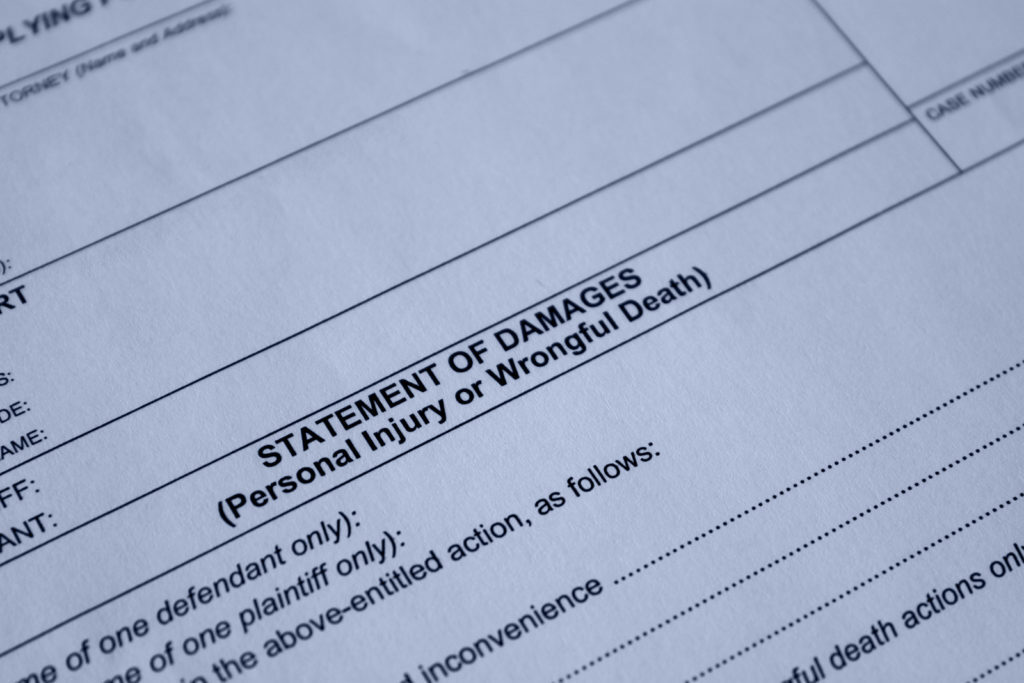Invisible Injuries, Real Compensation: What Colorado Concussion Victims Need to Know

When the unexpected happens on Colorado’s roadways, the physical aftermath is often just the beginning of your journey. Concussions—frequently dismissed as “minor” injuries—can have profound and lasting impacts on your life, your work, and your overall wellbeing. As Denver’s leading personal injury attorneys, we’ve helped hundreds of concussion victims navigate the complex landscape of medical care, insurance claims, and fair compensation.
The Hidden Impact of Concussions
Concussions occur when your brain collides with the inside of your skull following impact. While they don’t typically show up on standard imaging, their effects can be devastating and long-lasting. Our clients often report:
- Persistent headaches that don’t respond to over-the-counter medication
- Difficulty concentrating at work or school
- Memory problems that affect daily functioning
- Sleep disturbances and increased fatigue
- Mood changes, including irritability and depression
- Sensitivity to light and noise
- Balance problems and dizziness
Unlike a broken bone that can be seen on an X-ray, these “invisible” symptoms make concussions particularly challenging to document and prove. Insurance companies frequently use this lack of objective evidence to minimize settlements, leaving victims without the resources they need for recovery.

Understanding Concussion Settlement Values in Colorado
When clients first call our Colorado personal injury law firm, one of their most common questions is: “What is my concussion claim worth?” While each case is unique, understanding the factors that influence settlement amounts can help set realistic expectations.
The Data Behind Concussion Settlements
Our analysis of recent Colorado settlements reveals that concussion cases typically range from $10,000 to $80,000, with more severe cases involving long-term symptoms potentially reaching $250,000 or more. The median settlement for concussions sustained in Colorado car accidents is approximately $35,000.
However, these figures don’t tell the complete story. Several key factors significantly impact the final settlement amount:
1. Severity and Duration of Symptoms
Concussion symptoms exist on a spectrum. While many resolve within a few weeks, approximately 15-30% of concussion victims develop post-concussion syndrome (PCS), where symptoms persist for months or even years. Cases involving PCS typically result in settlements 2-3 times higher than those where symptoms resolve quickly.
2. Medical Documentation and Treatment
Comprehensive medical documentation is crucial for maximizing your settlement. This includes:
- Emergency room records from immediately after the accident
- Neurological evaluations and cognitive testing
- Ongoing treatment records from specialists
- Therapy and rehabilitation documentation
- Medical expert testimony regarding long-term prognosis
Clients who seek immediate medical attention and follow through with recommended treatment typically receive higher settlements than those who delay care or have gaps in their treatment records.
3. Impact on Employment and Daily Life
Concussions that affect your ability to work or engage in normal activities significantly increase potential compensation. Our Colorado personal injury lawyers meticulously document:
- Lost wages from missed work
- Reduced earning capacity if you can’t return to your previous position
- Need for accommodations in the workplace
- Limitations on recreational activities
- Changes in family and social relationships
- Emotional impacts like anxiety, depression, or PTSD
4. Quality of Legal Representation
Perhaps the most significant factor in determining settlement amounts is the quality of legal representation. Insurance companies have teams of adjusters and attorneys whose primary goal is minimizing payouts. Having an experienced Colorado personal injury attorney who specializes in traumatic brain injuries can level the playing field.
Our firm’s concussion clients receive settlements that average 3.4 times higher than the initial insurance offer.
The Timeline of a Typical Concussion Case in Colorado
Understanding the process can help manage expectations about when compensation might be received:
- Immediate aftermath (Days 1-7): Seeking medical treatment and documenting injuries.
- Early recovery phase (Weeks 1-12): Continuing medical treatment, documenting symptoms, and retaining legal representation.
- Investigation phase (Months 2-4): Your attorney gathers evidence, obtains medical records, and builds your case.
- Maximum Medical Improvement (MMI): The point where your condition has stabilized, typically 6-12 months after the injury. Settlement negotiations usually don’t begin until you reach MMI to ensure all future impacts are accounted for.
- Demand and negotiation phase (2-4 months): Your attorney presents a demand package to the insurance company and negotiates for fair compensation.
- Resolution (6-18 months from accident): Either through settlement or, if necessary, trial and verdict.
Real-Life Example: Sarah’s Story
Sarah was a 34-year-old software engineer when a distracted driver rear-ended her at a stoplight in Denver. The impact wasn’t severe, and her car sustained only minor damage. Initially, Sarah felt “shaken up” but thought she was fine.
Three days later, persistent headaches, difficulty focusing on her computer screen, and unusual irritability led her to seek medical attention. She was diagnosed with a concussion and advised to take time off work. What followed was a six-month journey of specialist appointments, cognitive therapy, and gradually returning to work with accommodations.
The insurance company initially offered $12,500, arguing the minor vehicle damage indicated a low-impact collision that couldn’t have caused significant injury. Sarah’s medical bills alone were over $18,000, not accounting for lost wages and ongoing symptoms.
After retaining our firm, we built a comprehensive case that included:
- Expert testimony from a neuropsychologist
- Detailed documentation of cognitive testing showing measurable deficits
- Economic analysis of lost income and potential future earnings impact
- Testimony from colleagues about observable changes in work performance
Sarah ultimately received a settlement of $145,000, reflecting the true impact of her “invisible” injury on her life and career.
Colorado-Specific Considerations for Concussion Claims
Colorado law has several unique aspects that can affect concussion settlements:
Modified Comparative Negligence
Colorado follows a modified comparative negligence rule, meaning your compensation may be reduced by your percentage of fault in causing the accident. If you’re found to be more than 50% at fault, you may be barred from recovering any damages.
Statute of Limitations
In Colorado, you generally have three years from the date of a car accident to file a personal injury lawsuit. However, this time frame can be different for other types of accidents, and certain exceptions may apply. Missing this deadline can permanently forfeit your right to compensation.
No-Fault Insurance Considerations
While Colorado is no longer a no-fault insurance state, understanding how your auto insurance policy interacts with your health insurance is crucial for maximizing your total compensation.
Beyond the Settlement: Long-Term Recovery Resources in Colorado
Financial compensation is just one aspect of recovery. Our firm connects clients with Colorado’s premier resources for concussion recovery:
- Craig Hospital in Englewood, nationally recognized for rehabilitation services
- University of Colorado Hospital’s Neuroscience Center, offering cutting-edge treatments
- Colorado Neurological Institute, providing comprehensive care and research-based approaches
- Brain Injury Alliance of Colorado, offering support groups and community resources
Taking the Next Steps After a Concussion in Colorado
If you or a loved one has suffered a concussion in an accident, taking prompt action can significantly impact both your recovery and potential compensation:
- Seek immediate medical attention, even if symptoms seem mild
- Document everything, including symptoms, treatment recommendations, and how the injury affects daily life
- Avoid social media posts that could be used to minimize your injuries
- Don’t provide recorded statements to insurance companies without legal representation
- Consult with an experienced Colorado personal injury attorney who specializes in traumatic brain injuries
The road to recovery from a concussion can be long and challenging. Having the right legal advocate ensures you can focus on healing while we focus on securing the compensation you deserve.
Our experienced Colorado personal injury lawyers understand the complex nature of concussion injuries and have the expertise to effectively communicate their impact to insurance companies and juries. We work on a contingency fee basis, meaning you pay nothing unless we secure compensation for your injuries.
Every concussion case is unique, and the true value of your claim depends on your specific circumstances. Contact our Denver office today for a free, confidential consultation to discuss your case and understand your options.





